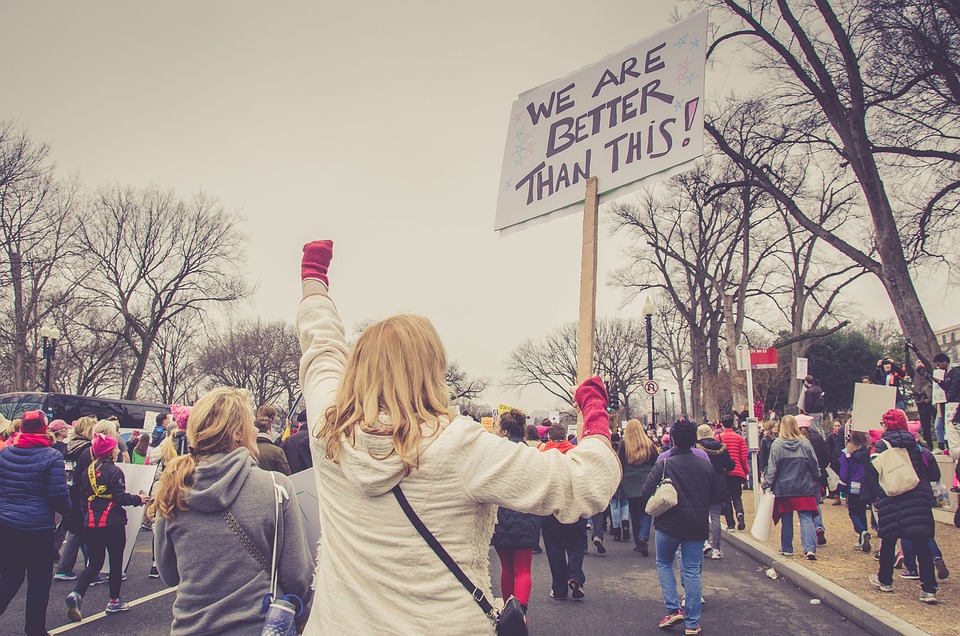The Rise of Progressive Politics in a Post-Trump Era
In the wake of Donald Trump’s presidency, there has been a noticeable shift towards progressive politics in the United States. From grassroots activism to the surge of progressive politicians being elected into office, there is a clear momentum building in favor of more liberal policies and values.
The Impact of Trump’s Presidency
The election of Donald Trump in 2016 was a shock to many Americans, as his campaign focused on divisive rhetoric and promises to roll back many of the progressive policies implemented by the Obama administration. However, his presidency also sparked a wave of resistance and activism from those who were opposed to his agenda.
Trump’s policies on immigration, healthcare, and the environment galvanized progressives to fight back through protests, organizing, and running for office themselves. The Women’s March, held just a day after Trump’s inauguration in 2017, was one of the largest protests in US history and signaled the beginning of a new era of activism.
Grassroots Activism
One of the most significant developments in the post-Trump era has been the rise of grassroots activism. Organizations such as Indivisible, which was founded in response to Trump’s election, have mobilized millions of people to resist his policies and work towards a more progressive future.
These grassroots movements have focused on issues such as healthcare, climate change, racial justice, and income inequality. They have also played a key role in the success of progressive politicians in recent elections, providing the groundwork for progressive policies to be implemented at the local, state, and national levels.
The Progressive Wave
The 2018 midterm elections saw a record number of progressive candidates elected to Congress and state legislatures. Figures like Alexandria Ocasio-Cortez, Ilhan Omar, and Rashida Tlaib became the face of a new wave of progressive politicians who are pushing for policies such as Medicare for All, the Green New Deal, and criminal justice reform.
These politicians have been able to connect with voters by focusing on issues that impact their daily lives, such as high healthcare costs, student loan debt, and stagnant wages. They have also challenged the status quo within the Democratic Party, advocating for more progressive policies and rejecting corporate influence in politics.
Challenges and Opportunities
While the rise of progressive politics in the post-Trump era is promising, there are still challenges that must be overcome. The Democratic Party remains divided between its progressive and moderate wings, and there is a significant pushback from conservatives who view progressive policies as too extreme.
In order to continue the momentum towards progressive politics, advocates must be strategic in their approach and focus on issues that resonate with a broad swath of the electorate. They must also be willing to work with allies from different backgrounds and ideologies in order to build a coalition that can enact real change.
At the same time, there are also significant opportunities for progressive politics to thrive in the coming years. The COVID-19 pandemic has highlighted the need for a more robust social safety net and healthcare system, and the ongoing movement for racial justice has brought issues of systemic racism to the forefront of public discourse.
The Path Forward
As we move into a post-Trump era, the future of progressive politics in the United States looks bright. The momentum that has been built over the past few years shows no signs of slowing down, and there is a growing appetite for bold, progressive policies that address the root causes of inequality and injustice.
In order to capitalize on this momentum, progressives must continue to organize, mobilize, and advocate for policies that benefit all Americans. They must also be willing to engage in difficult conversations, build coalitions, and work towards a more inclusive and equitable society.
With the rise of progressive politics in a post-Trump era, the United States has the opportunity to chart a new course towards a more just, equitable, and sustainable future. By harnessing the energy and passion of grassroots activists, progressive politicians, and everyday citizens, we can create a country that works for all of its people, not just the wealthy and powerful.
